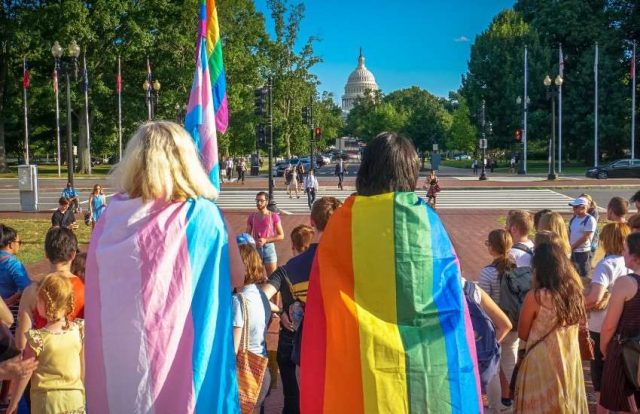
On Friday (17 May), the United States House of Representatives made history when it passed the Equality Act.
In a 236-173 vote along party lines, the House protecting LGBTI people for the first time. While legislators previously introduced the Equality Act, it had never before made it to a full House vote.
The Equality Act amends the Civil Rights Act of 1964. It supercedes state law, meaning no one can legally discriminate against LGBTI people, regardless of whether state laws already protect them or not.
Currently, half of all LGBTI Americans live in the nearly 30 states lacking non-discrimination laws for LGBTI individuals. A majority of all LGBTI Americans (two-thirds) have also reported experiencing discrimination and harassment due to their identity.
Polling shows a majority of all Americans support these protections.
But how can this legislation actually become law?
Typically, a bill becomes law by passing in the House, and then the Senate, with majority votes. After it makes it through Congress, it heads to the White House where the president either signs it into law or vetoes it and sends it back to Congress.
These are two massive hurdles for the Equality Act — the Senate is controlled by Republicans and the White House has already .
In celebrating the bill’s passage in the House, many LGBTI groups and Democratic politicians like Sen. Tammy Baldwin to hold a vote on the Equality Act.
McConnell, however, told BuzzFeed News last week he has ‘no scheduling announcements regarding Senate action’.
If McConnell lets the Equality Act die without a Senate vote, legislators can either re-introduce it in the next session, or it will be up to the courts to pass protections for LGBTI people.
Courts are another way rules and laws come to fruition in the US. While judges cannot create new laws, their judgements interpreting the Constitution and existing laws can evolve law implementation.
A court in California recently requesting citizenship for their child, for example.
In the upcoming Supreme Court session, the seven Justices will e, one of the tenants of the Equality Act.
If the Equality Act does not become law through Congress and the President, the Supreme Court could ultimately rule on anti-discrimination protections. This is what happened in 2015 with same-sex marriage.
Some activists are worried, however, because of the Supreme Court’s current conservative majority. After the Senate confirmed two of Donald Trump’s nominees, the top court has a four-person conservative majority.
It may take time before the Equality Act carves out a path to become law, but activists continue to fight.







